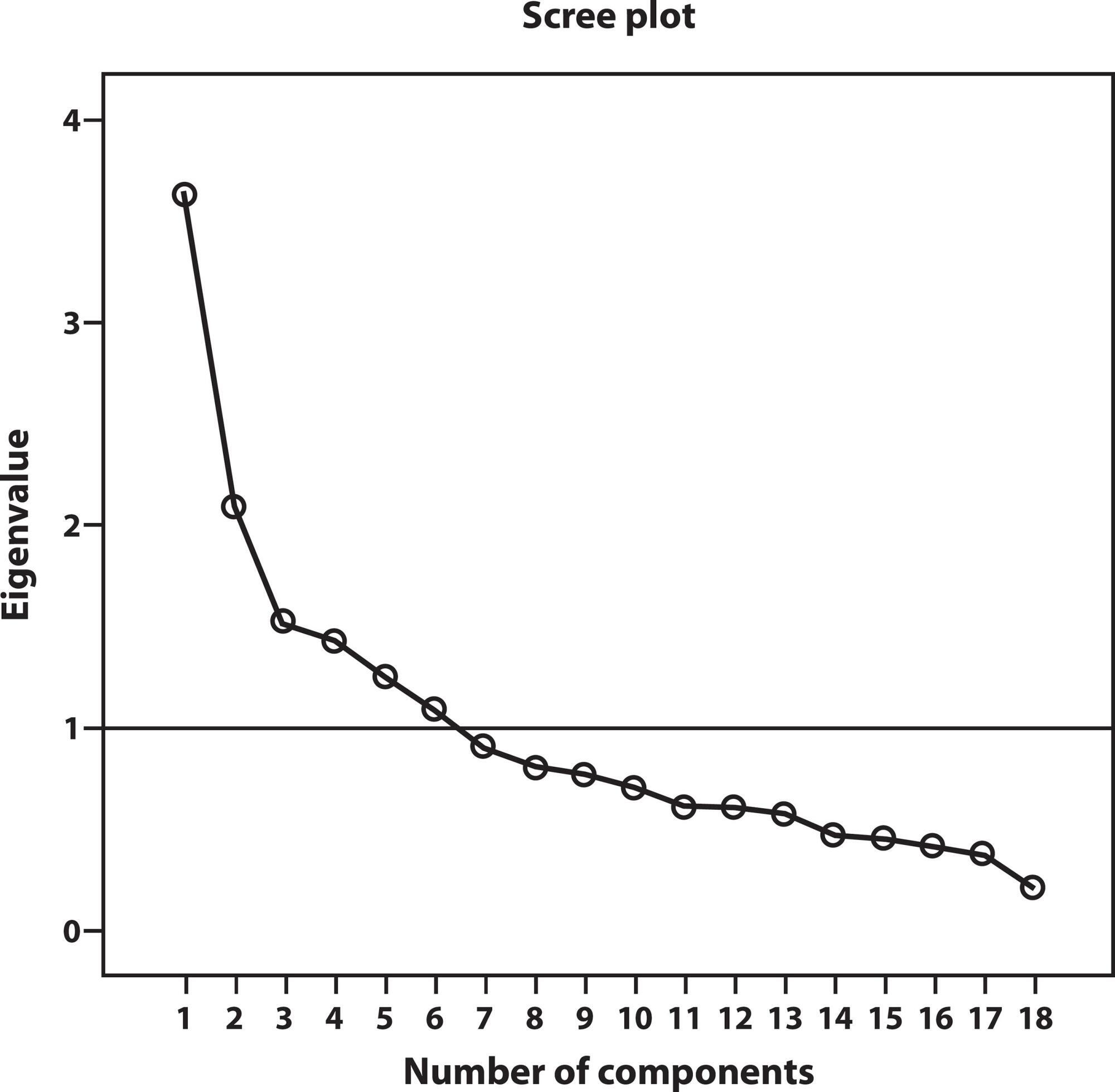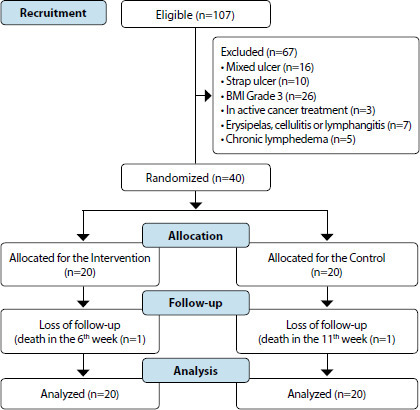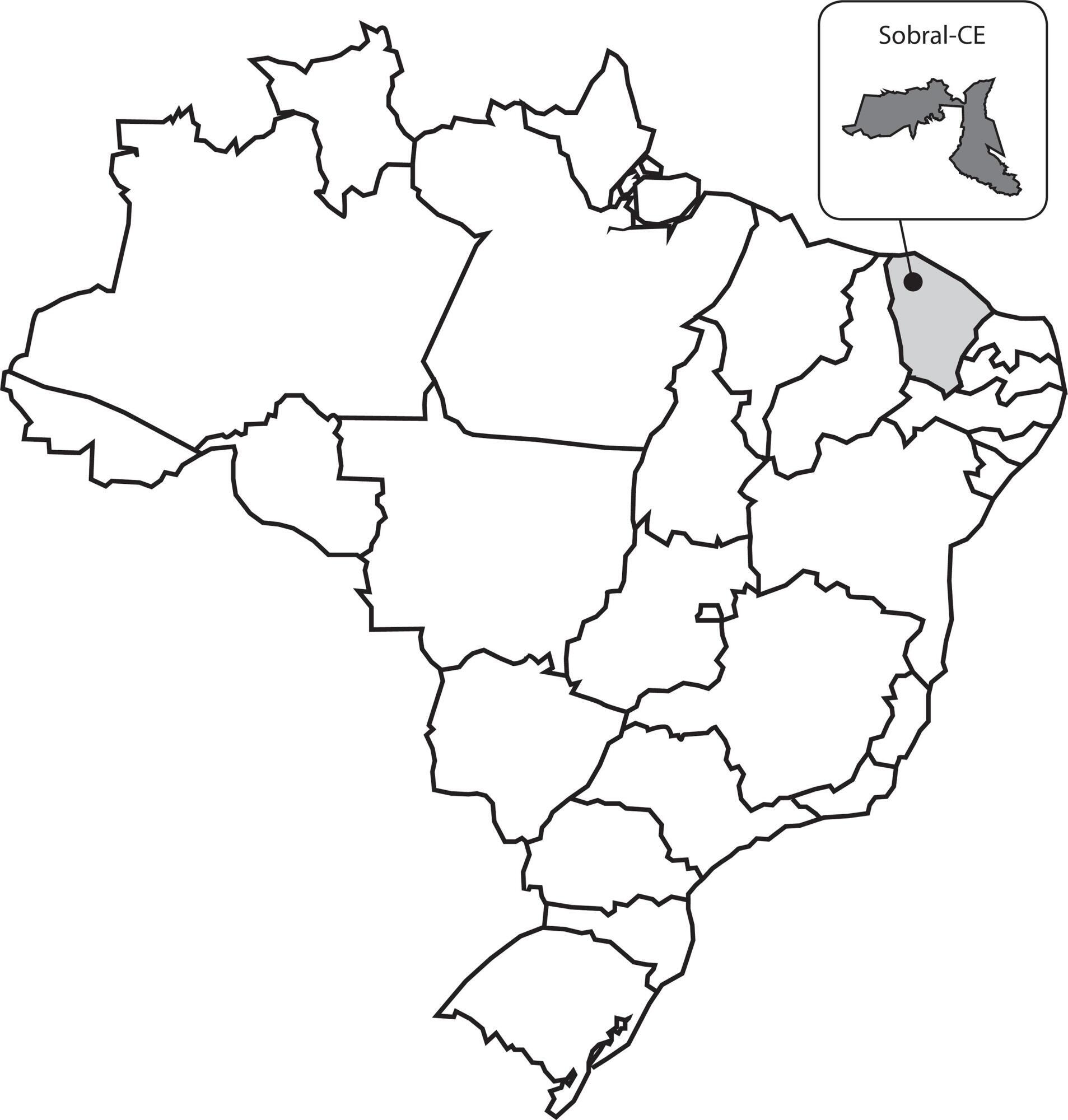-
01-01-2016
Descobertas das Ciências Biológicas e as implicações para a prática da Enfermagem
Revista Brasileira de Enfermagem. 2016;69(4):619-620
Abstract
Descobertas das Ciências Biológicas e as implicações para a prática da Enfermagem
Revista Brasileira de Enfermagem. 2016;69(4):619-620
DOI 10.1590/0034-7167.2016690401i
Views1A produção de conhecimento na área das ciências biológicas, durante muito tempo, foi vista como de responsabilidade e competência exclusivamente de profissionais médicos. Esse cenário alterou-se frente à tendência mundial de aperfeiçoamento dos demais profissionais de saúde, incluindo-se a necessidade de se concretizar a utilização da metodologia da prática baseada em evidência na atuação do […]See more -
01-01-2016
Discoveries of Biological Sciences and their implications for nursing practice
Revista Brasileira de Enfermagem. 2016;69(4):619-620
Abstract
Discoveries of Biological Sciences and their implications for nursing practice
Revista Brasileira de Enfermagem. 2016;69(4):619-620
DOI 10.1590/0034-7167.2016690401i
Views1For the longest time, the production of knowledge in the field of biological sciences was viewed as the exclusive responsibility and competence of medical professionals. This scenario has changed in light of the worldwide trend of improvements in other health professions, which includes the need to implement the use of evidence-based methodology in nursing practice. […]See more -
01-01-2016
The importance of civilian nursing organizations: integrative literature review
Revista Brasileira de Enfermagem. 2016;69(3):610-618
Abstract
The importance of civilian nursing organizations: integrative literature review
Revista Brasileira de Enfermagem. 2016;69(3):610-618
DOI 10.1590/0034-7167.2016690326i
Views0See moreABSTRACT
Objective:
to identify and analyze evidence from studies about the importance of civilian nursing organizations.
Method:
an integrative literature review, for which searches were conducted in the databases LILACS, PubMed/MEDLINE, SciELO, BDENF, and Scopus.
Results:
sixteen articles published between the years 2004-2013 were selected, 68.75% of which were sourced from Brazilian journals and 31.25% from American journals.
Conclusion:
civilian nursing organizations are important and necessary, because they have collaborated decisively in nursing struggles in favor of the working class and society in general, and these contributions influence different axes of professional performance.
-
01-01-2016
Effects from acupuncture in treating anxiety: integrative review
Revista Brasileira de Enfermagem. 2016;69(3):602-609
Abstract
Effects from acupuncture in treating anxiety: integrative review
Revista Brasileira de Enfermagem. 2016;69(3):602-609
DOI 10.1590/0034-7167.2016690325i
Views0See moreABSTRACT
Objective:
to evaluate the scientific evidence that is available in the literature on the effects of acupuncture for treating anxiety and on the quality of such studies.
Method:
the study is an integrative review of CINAHL, LILACS, PUBMED-PICO, SciELO, and The Cochrane Library between 2001 and 2014. Keywords anxiety, acupuncture therapy, acupuncture, and anxiety disorders were combined among themselves to ensure a wide search of primary studies.
Results:
among 514 articles, 67 were selected to be fully read and 19 were included. Among these, 11 were found to have strong evidence levels. Among the six articles about randomized clinical studies, five were found to be of reasonable quality. Two studies used acupuncturist nurses to perform their interventions. Its results showed positive and statistically significant effects from using acupuncture for treating subjects with anxiety.
Conclusion:
acupuncture seems to be a promising treatment for anxiety; however, there is a need for improving the methodological quality of the research on this field.
-
01-01-2016
Palliative care and spirituality: an integrative literature review
Revista Brasileira de Enfermagem. 2016;69(3):591-601
Abstract
Palliative care and spirituality: an integrative literature review
Revista Brasileira de Enfermagem. 2016;69(3):591-601
DOI 10.1590/0034-7167.2016690324i
Views0See moreABSTRACT
Objective:
to analyze scientifi c articles published in international online journals about palliative care and spirituality.
Methods:
an integrative literature review with data collected in September 2014 from the LILACS, SCIELO, MEDLINE/PubMed, and IBECS databases.
Results:
thirty-nine publications were identifi ed and their textual analysis facilitated through four thematic approaches: the meaning of spirituality in the context of palliative care; palliative care and spiritual support; spirituality and relief of pain and other symptoms in patients under palliative care; and instruments to evaluate the spiritual dimension of the scope of palliative care.
Conclusion:
this study examined the relevance of the spiritual dimension in the care of patients with palliative care and the need for developing new studies to disseminate knowledge about this topic.
Descriptors:
Palliative Care; Palliative Care at End of Live; Spirituality; Religion; Health.
-
01-01-2016
Educational technologies to encourage (self) care in postpartum women
Revista Brasileira de Enfermagem. 2016;69(3):582-590
Abstract
Educational technologies to encourage (self) care in postpartum women
Revista Brasileira de Enfermagem. 2016;69(3):582-590
DOI 10.1590/0034-7167.2016690323i
Views0See moreABSTRACT
Objective:
to evaluate national and international literature regarding the use of educational technologies to encourage self care in postpartum women.
Method:
an integrative review of the literature. The articles were collected from the CINAHL, SCOPUS, PubMed, SciELO, LILACS and Cochrane databases; the time period for the articles referred to January/2004 to July/2014; the languages used in the articles were Portuguese, English, Spanish and French; the articles were selected from the following descriptors: postpartum care period, educational technology, nursing and self care. Twenty-seven articles were selected for analysis
Results:
based on the information found, the scales, counseling and home visits were among the most recommended educational technologies.
Conclusion:
the technologies promote communication, but are sometimes dependent on computer and internet access, which hinder their use by low-income women.

-
01-01-2016
Patients with HIV/Aids and ulcer risk: nursing care demands
Revista Brasileira de Enfermagem. 2016;69(3):574-581
Abstract
Patients with HIV/Aids and ulcer risk: nursing care demands
Revista Brasileira de Enfermagem. 2016;69(3):574-581
DOI 10.1590/0034-7167.2016690322i
Views0See moreABSTRACT
Objective:
to analyze the demand for nursing care and the risk of pressure ulcers (PU) of patients with HIV/Aids.
Method:
quantitative survey, carried out from December 2012 to March 2013 in a public hospital of Teresina, state of Piauí, Brazil.
Results:
the sample of 31 patients was predominantly male, mean age 36.6 years, average care demand 49.4%, most showing some risk of developing PU. The variables correlated with PU risk were care demand and clinical outcome (death). Those associated with care demand were age and clinical outcome (death).
Conclusion:
the results showed that patients require moderate nursing care needs and most of them present risk of developing PU.

-
01-01-2016
Lack of anticipated support for care for community-dwelling older adults
Revista Brasileira de Enfermagem. 2016;69(3):566-573
Abstract
Lack of anticipated support for care for community-dwelling older adults
Revista Brasileira de Enfermagem. 2016;69(3):566-573
DOI 10.1590/0034-7167.2016690321
Views0See moreABSTRACT
Objective:
to identify the factors associated with lack of anticipated support for care for community-dwelling older adults.
Method:
this study presents comparison and logistic regression analyses of data from 671 individuals who took part of the multicentric study entitled “Frailty in older Brazilians” – a quantitative, epidemiologic and transversal investigation carried out between 2008 and 2009.
Results:
the subjective evaluation of anticipated support for care for community-dwelling older adults was a good indicator of risk for lack of anticipated support for care in women, older adults who live alone and those with poor self-rated health.
Conclusion:
it is necessary to reflect upon the formal support system currently available for older people in Brazil, considering that those who most frequently presented lack of anticipated support for care are an increasing population. The study also highlights the importance of using subjective methods for the evaluation of the adequacy of older adults’ support network.
-
ORIGINAL ARTICLE02-10-2020
Stress and health risk behaviors among university students
Revista Brasileira de Enfermagem. 2020;73(1):e20180035
Abstract
ORIGINAL ARTICLEStress and health risk behaviors among university students
Revista Brasileira de Enfermagem. 2020;73(1):e20180035
DOI 10.1590/0034-7167-2018-0035
Views0See moreABSTRACT
Objective:
To analyze the level of stress and its relationship with health risk behaviors among university students.
Method:
Cross-sectional analytical study carried out at a higher education institution in Picos-PI. A total of 377 students were evaluated for socio-demographic and academic variables, stress profile, sleep quality, alcohol use, smoking habits and level of physical activity. The Statistical Package for the Social Sciences (SPSS), version 20.0 was used for data processing and analysis.
Results:
Sleep quality was poor for 65.3% of the subjects, and sleep disturbances were found in 17.0%. Stress was observed in 68.7% of the sample. Stress was associated with the following variables: gender, time in the institution, poor sleep quality.
Conclusion:
Most of the students evaluated present some level of stress associated with poor sleep quality, which is a risk to the quality of life of these individuals.
-
09-16-2019
Construct validation: coping with HIV/AIDS in Primary Health Care
Revista Brasileira de Enfermagem. 2019;72(5):1173-1181
Abstract
Construct validation: coping with HIV/AIDS in Primary Health Care
Revista Brasileira de Enfermagem. 2019;72(5):1173-1181
DOI 10.1590/0034-7167-2018-0734
Views0See moreABSTRACT
Objective:
To validate the construct and measure the trustworthiness of a questionnaire aimed at assessing HIV/AIDS coping actions developed by health professionals in Primary Health Care.
Method:
A methodological study carried out with 397 primary health care professionals in two municipalities in the Northeast region of Brazil. The construct validity was developed by the exploratory and confirmatory factor analysis, and the reliability analyzed by the reliability and reproducibility.
Results:
The validation determined six factors retention that composed the six domains of the questionnaire. Internal consistency was 0.91 and quality of the confirmatory analysis adjustment was 0.998 for Goodness of Fit Index. The domains presented Kappa values between 0.833 and 0.997.
Conclusions:
The final questionnaire was composed of 18 items and presented feasibility of application, and potential to evaluate actions for HIV/AIDS control in Primary Health Care.

-
ORIGINAL ARTICLE11-12-2022
Low-laser light therapy in venous ulcer healing: a randomized clinical trial
Revista Brasileira de Enfermagem. 2022;75(3):e20210396
Abstract
ORIGINAL ARTICLELow-laser light therapy in venous ulcer healing: a randomized clinical trial
Revista Brasileira de Enfermagem. 2022;75(3):e20210396
DOI 10.1590/0034-7167-2021-0396
Views0See moreABSTRACT
Objectives:
to compare the effect of adjuvant low-laser light therapy versus conventional treatment alone on venous ulcer healing.
Methods:
this is a randomized clinical trial with 40 patients randomized equally to a control group (topical and compressive treatment) and intervention group (adjuvant low-laser light therapy). Outcomes of interest were Wound Healing: Secondary Intention and Tissue Integrity: Skin & Mucous Membranes, as described in the Classification of Nursing Outcomes/NOC.
Results:
groups with similar sociodemographic and clinical characteristics. Eighty-two ulcers were assessed, with an average duration of 1 to 5 years, in 1,066 nursing consultations, with a statistically significant difference in the time and number of healed ulcers (intervention group). There was a significant improvement in the nursing outcomes under study and in eight clinical indicators.
Conclusions:
low-laser light therapy improves and reduces tissue regeneration time, contributing to advances in wound treatment.

-
05-21-2021
Evolution of nursing teaching in the use of education technology: a scoping review
Revista Brasileira de Enfermagem. 2021;74:e20200422
Abstract
Evolution of nursing teaching in the use of education technology: a scoping review
Revista Brasileira de Enfermagem. 2021;74:e20200422
DOI 10.1590/0034-7167-2020-0422
Views1See moreABSTRACT
Objective:
To identify and map the technological tools of information and communication to support the teaching learning process in Nursing teaching courses.
Methods:
This is a scoping review whose search was carried out in seven databases and in grey literature. After an initial analysis of the selection, 88 texts were read integrally, and 29 made up the final sample.
Results:
Virtual learning environment and object, simulation, hypermedia, and software or cellphone applications were the tools the nursing professors used the most. Studies highlight that the application of technology was important in the teaching-learning process, since it encouraged teaching based on safe care, motivating and developing abilities/competences, supported on significant, effective, flexible, and autonomous learning.
Conclusion:
The contribution of the technology for nursing formation stands out, but it should be highlighted that its employment must be critical, reflective, based on pedagogical theories and developed by trained professors.

-
ORIGINAL ARTICLE09-30-2020
Organizational culture, authentic leadership and quality improvement in Canadian healthcare facilities
Revista Brasileira de Enfermagem. 2020;73:e20190732
Abstract
ORIGINAL ARTICLEOrganizational culture, authentic leadership and quality improvement in Canadian healthcare facilities
Revista Brasileira de Enfermagem. 2020;73:e20190732
DOI 10.1590/0034-7167-2019-0732
Views0See moreABSTRACT
Objective:
To investigate relationships among flexible and hierarchical organizational cultures, quality improvement domains, and authentic leadership competencies in Canadian healthcare facilities.
Method:
Observational cross-sectional study conducted in Alberta, Canada. Nurse managers (n=226) completed a survey including validated measures of organizational culture, quality improvement and authentic leadership. Data were analyzed using descriptive statistics, Spearman’s correlation coefficient and Chi-squared test (p<0.05).
Results:
Quality improvement through accreditation is related to organizational culture and authentic leadership. We saw a propensity for participants who reported working in a more flexible culture also reported greater quality improvement implementation and authentic leadership practices.
Conclusion:
This study assessed and reported the relationships between flexible organizational cultures, quality improvement through the accreditation process, and authentic leadership practices of healthcare managers. Flexible organizational cultures influence the adoption of authentic leadership, participatory management model and also improves quality.
-
ORIGINAL ARTICLE09-16-2019
Temporal trend of leprosy in a region of high endemicity in the Brazilian Northeast
Revista Brasileira de Enfermagem. 2019;72(5):1356-1362
Abstract
ORIGINAL ARTICLETemporal trend of leprosy in a region of high endemicity in the Brazilian Northeast
Revista Brasileira de Enfermagem. 2019;72(5):1356-1362
DOI 10.1590/0034-7167-2018-0682
Views0See moreABSTRACT
Objective:
to analyze the temporal trend and epidemiological patterns of leprosy indicators in Sobral, a municipality countryside of the state of Ceará, from 2001 to 2016.
Method:
a time series study based on data from the Department of Informatics of the Unified Health System. The time trend analysis was performed using the join point regression model.
Results:
There were 2,220 new cases of leprosy in Sobral from 2001 to 2016. Of these, 158 (7.2%) in children younger than 15 years of age, the proportion of new male cases was 52.8% (1,162), cases with grade 2 were 7.0% (156), and proportion of cases diagnosed by contact examination 5.7% (126).
Final considerations:
leprosy remains hyperendemic in adults and children, demonstrating the character of neglected disease. Analysis of the temporal trend allowed to verify that the instability in the detection coefficients, reflect operational problems in the organization of the services

-
ORIGINAL ARTICLE03-07-2022
Adaptation and validation of the Advanced Practice Nursing Competency Assessment Instrument
Revista Brasileira de Enfermagem. 2022;75(5):e20210582
Abstract
ORIGINAL ARTICLEAdaptation and validation of the Advanced Practice Nursing Competency Assessment Instrument
Revista Brasileira de Enfermagem. 2022;75(5):e20210582
DOI 10.1590/0034-7167-2021-0582
Views0See moreABSTRACT
Objective:
To adapt and validate the content of the Advanced Practice Nursing Competency Assessment Instrument (APNCAI) to Brazilian culture.
Methods:
This is a methodological study that followed the stages of translation, synthesis, back translation, evaluation by a committee of five specialists, pre-test with 31 nurses, and evaluation by the author of the original instrument. The Content Validity Index (minimum 0.90) and the modified Kappa (minimum 0.74) were calculated to evaluate the content.
Result:
In the first round of content evaluation, 18 items had to be altered because they did not reach the minimum values established. Three items have not reached a consensus in the second round and had to be sent to the author of the original version. In the pre-test, 13 items were returned to the specialists because they suffered content changes.
Conclusion:
The Advanced Practice Nursing Competency Assessment Instrument (APNCAI) – Brazilian version was cross-culturally adapted, and its content was validated.
-
ORIGINAL ARTICLE08-19-2019
Factors related to impaired comfort in chronic kidney disease patients on hemodialysis
Revista Brasileira de Enfermagem. 2019;72(4):889-895
Abstract
ORIGINAL ARTICLEFactors related to impaired comfort in chronic kidney disease patients on hemodialysis
Revista Brasileira de Enfermagem. 2019;72(4):889-895
DOI 10.1590/0034-7167-2018-0120
Views0See moreABSTRACT
Objective:
to analyze the factors related to the impaired comfort of chronic kidney diseases (CKD) patients on hemodialysis.
Method:
this is a cross-sectional study with 80 patients undergoing hemodialysis in a renal replacement therapy unit through interviews using two instruments, one for clinical and sociodemographic characteristics and the General Comfort Questionnaire, during the hemodialysis session. Mann-Whitney tests and the logistic regression model were used for data analysis.
Results:
the study found that being younger (p=0.045); being married (p=0.05); and absence of impaired physical mobility (p=0.007) were contributing factors for greater comfort in CKD patients on hemodialysis. Thus, when establishing the odds ratio, it was possible to observe that being 55 years of age or older, being single and having impaired physical mobility represents a 45.7% chance of developing this diagnosis.
Conclusions:
sociodemographic and clinical variables contribute to the study outcome, demanding attention during the planning of nursing interventions.
Search
Search in:
Nuvem de Tags
Adolescente (85) Atenção Primária à Saúde (239) COVID-19 (91) Criança (91) Cuidados de Enfermagem (269) Educação em Enfermagem (151) Educação em Saúde (139) Enfermagem (930) Enfermagem Pediátrica (86) Estudantes de Enfermagem (77) Estudos de Validação (131) Família (87) Idoso (208) Promoção da Saúde (99) Qualidade de Vida (104) Saúde do Trabalhador (86) Saúde Mental (145) Saúde Pública (82) Segurança do Paciente (150) Tecnologia Educacional (100)



